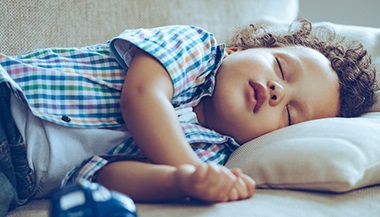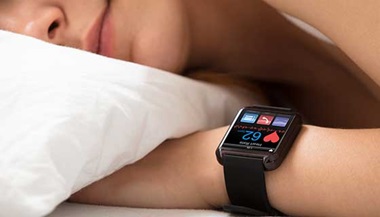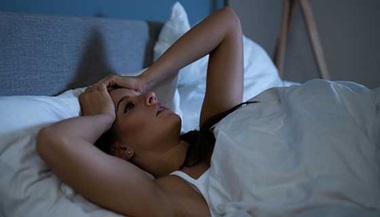Sleep Deprivation
What is sleep deprivation?
Sleep deprivation means you’re not getting enough sleep. For most adults, the amount of sleep needed for best health is 7 to 8 hours each night.
When you get less sleep than that, as many people do, it can eventually lead to a whole host of health problems. These can include forgetfulness, being less able to fight off infections, and even mood swings and depression.
What causes sleep deprivation?
Sleep deprivation is not a specific disease. It is usually the result of other illnesses or due to life circumstances.
Sleep deprivation is becoming more common. Many people try to adjust their schedule to get as much done as possible, and sleep is sacrificed.
Sleep deprivation also becomes a greater problem as people grow older. Although older adults probably need as much sleep as younger adults, they typically sleep more lightly and for shorter time spans than younger people. It’s estimated that half of all people older than 65 have frequent sleeping problems.
Sleep deprivation can occur for a number of reasons:
Sleep disorder. These include insomnia, sleep apnea, narcolepsy, and restless legs syndrome.
Aging. People older than 65 have trouble sleeping because of aging, medicine they’re taking, or medical problems they’re experiencing.
Illness. Sleep deprivation is common with depression, schizophrenia, chronic pain syndrome, cancer, stroke, and Alzheimer’s disease.
Other factors. Many people have occasional sleep deprivation for other reasons, including stress, a change in schedule, or a new baby disrupting their sleep schedule.
What are the symptoms of sleep deprivation?
At first, sleep deprivation may cause minor symptoms, but over time, these symptoms can become more serious.
Initial sleep deprivation symptoms may include:
Drowsiness
Inability to concentrate
Impaired memory
Reduced physical strength
Diminished ability to fight off infections
Sleep deprivation complications over time may include:
Increased risk for depression and mental illness
Increased risk for stroke and asthma attack
Increased risk for potentially life-threatening complications, such as car accidents, and untreated sleep disorders like insomnia, sleep apnea, and narcolepsy
Hallucinations
Severe mood swings
How is sleep deprivation diagnosed?
Sleep specialists say that one of the telltale signs of sleep deprivation is feeling drowsy during the day. In fact, even if a task is boring, you should stay alert during it if you are not sleep-deprived. Also, if you frequently fall asleep within 5 minutes of lying down, then you likely have severe sleep deprivation. People with sleep deprivation also experience “microsleeps,” which are brief periods of sleep during waking time. In many cases, sleep deprived people may not even be aware that they are experiencing these microsleeps.
If you have any of these warning signs or the symptoms listed above, see your doctor or ask for a referral to a sleep specialist. Your doctor will ask you detailed questions to get a better sense of the nature of your sleeping problems.
In some instances, if a more serious and possibly life-threatening sleep disorder, such sleep apnea, is suspected, then the sleep specialist may conduct a test called a polysomnography, or a sleep study. This test actually monitors your breathing, heart rate, and other vital signs during an entire night of sleep. It gives the sleep specialist useful information to help diagnose and treat your underlying disorder.
How is sleep deprivation treated?
Treatments for sleep deprivation vary based on how severe it is. In some cases, your doctor may want you to try self-care strategies before turning to medicine. Your doctor may prescribe sleeping pills, but keep in mind that they tend to lose effectiveness after a few weeks and can then actually disrupt your sleep. For more serious insomnia, your doctor may have you try light therapy, which can help your body’s internal clock readjust and allow you to sleep more restfully.
If you are diagnosed with sleep apnea, your doctor may prescribe a special breathing machine you’ll use while you sleep called CPAP (continuous positive airway pressure). This machine provides a continuous flow of air to help keep your airway open.
Can sleep deprivation be prevented?
If your sleep deprivation is mild, these simple strategies may help you to get a better night’s sleep:
Exercise at least 20 to 30 minutes each day, at least 5 to 6 hours before going to bed. This will make you more likely to fall asleep later in the day.
Avoid substances that contain caffeine, nicotine, and alcohol, all of which can disrupt your regular sleep patterns. Quitting smoking is always a good idea.
How to manage sleep deprivation
Creating a relaxing bedtime routine often helps to conquer sleep deprivation and get a good night’s sleep. This can include taking a warm bath, reading, or meditating and allowing your mind to drift peacefully to sleep.
Another step that may help you to get a good night’s sleep is sticking to a consistent schedule, meaning that you go to bed and wake up at the same time every day. If possible, waking up with the sun is a good way to reset your body’s clock more naturally.
Also, keep your bedroom at a reasonable temperature. A bedroom that is too hot or too cold can disrupt sleep.
If you’re having trouble sleeping, try doing something else like reading a book for a few minutes. The anxiety of not being able to fall asleep can actually make sleep deprivation worse for some people.
Finally, be sure to see a doctor if your problems with sleep deprivation continue. Don’t let sleep problems linger.
Key points about sleep deprivation
Sleep deprivation is not a specific disease. It is usually the result of other illnesses or life circumstances.
Sleep deprivation can become a greater problem as people grow older.
One of the telltale signs of sleep deprivation is feeling drowsy during the day.
Treatments for sleep deprivation vary based on how severe it is.
Creating a relaxing bedtime routine often helps to conquer sleep deprivation and get a good night’s sleep.
The anxiety of not being able to fall asleep can actually make sleep deprivation worse for some people.





